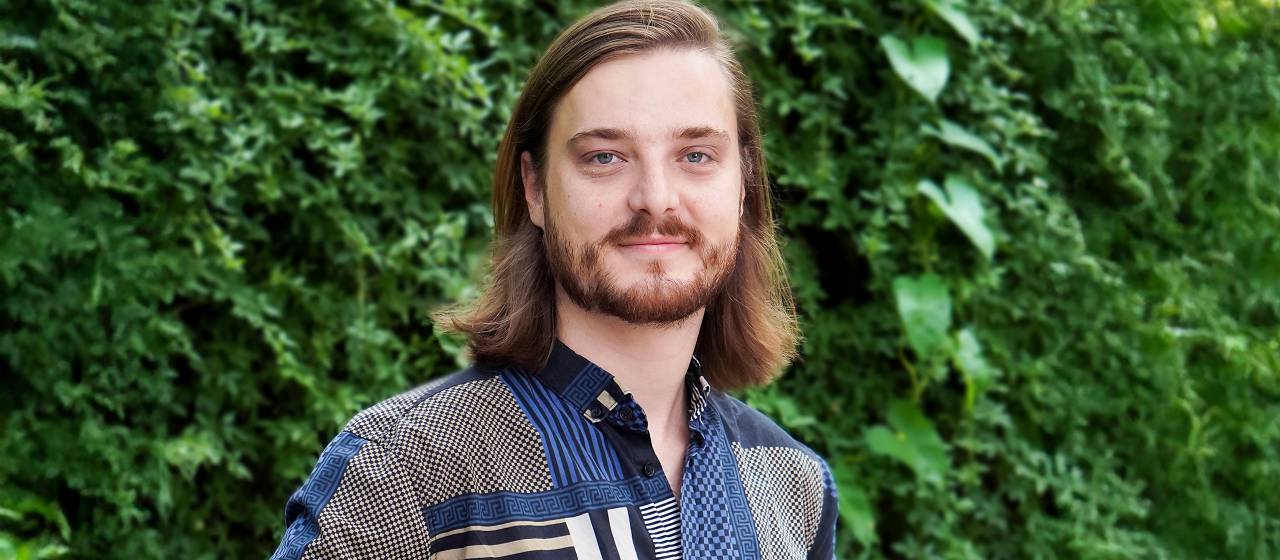Graduate student Theo Gibbs named a 2025 Schmidt Science Fellow
The Schmidt Science Fellows announced April 2 that Theo Gibbs, a sixth-year graduate student in Princeton's Program in Quantitative and Computational Biology (QCB), is one of 32 early-career researchers awarded fellowships to pursue innovative interdisciplinary science. Founded in 2017, the fellowships support a one- or two-year postdoctoral position at a world-class research institution.
“Philanthropic funding of scientific research, and especially support of early-career researchers, has never been more important,” said Wendy Schmidt, who co-founded Schmidt Science Fellows with her husband, Eric, a 1976 graduate of Princeton.
“By providing Schmidt Science Fellows with support, community, and freedom to work across disciplines and gain new insights, we hope they’ll tackle some of the world’s most vexing challenges, achieve breakthroughs and help create a healthier, more resilient world for all,” she said in a press release.
Gibbs, who will complete his Ph.D. next month, studies bacterial pathogens, "the microscopic organisms that infect a wide range of hosts, impacting human health, agricultural production and other societally important biological processes," Schmidt Science Fellows noted in its précis of this year's fellows.
At Princeton, Gibbs has been jointly advised by Simon Levin, Princeton's James S. McDonnell Distinguished University Professor in Ecology and Evolutionary Biology (EEB) and the director of Princeton's Center for BioComplexity, and Jonathan Levine, the J.N. Allison Professor of Environmental Studies and department chair of EEB.
Previous research has revealed that the human microbiome can "resist colonization by harmful bacteria even when these bacteria are not eradicated by our antibiotics, but the exact mechanism behind this resistance is not well understood," the Schmidt organization explained. "As a 2025 Schmidt Science Fellow, Gibbs seeks to understand how colonization resistance emerges from the ecological interactions within a diverse microbiome.
"Using a combination of modern molecular biology techniques and theoretical methods from statistical physics, he hopes to determine how microbial metabolism prevents disease, guiding the development of new probiotics."



